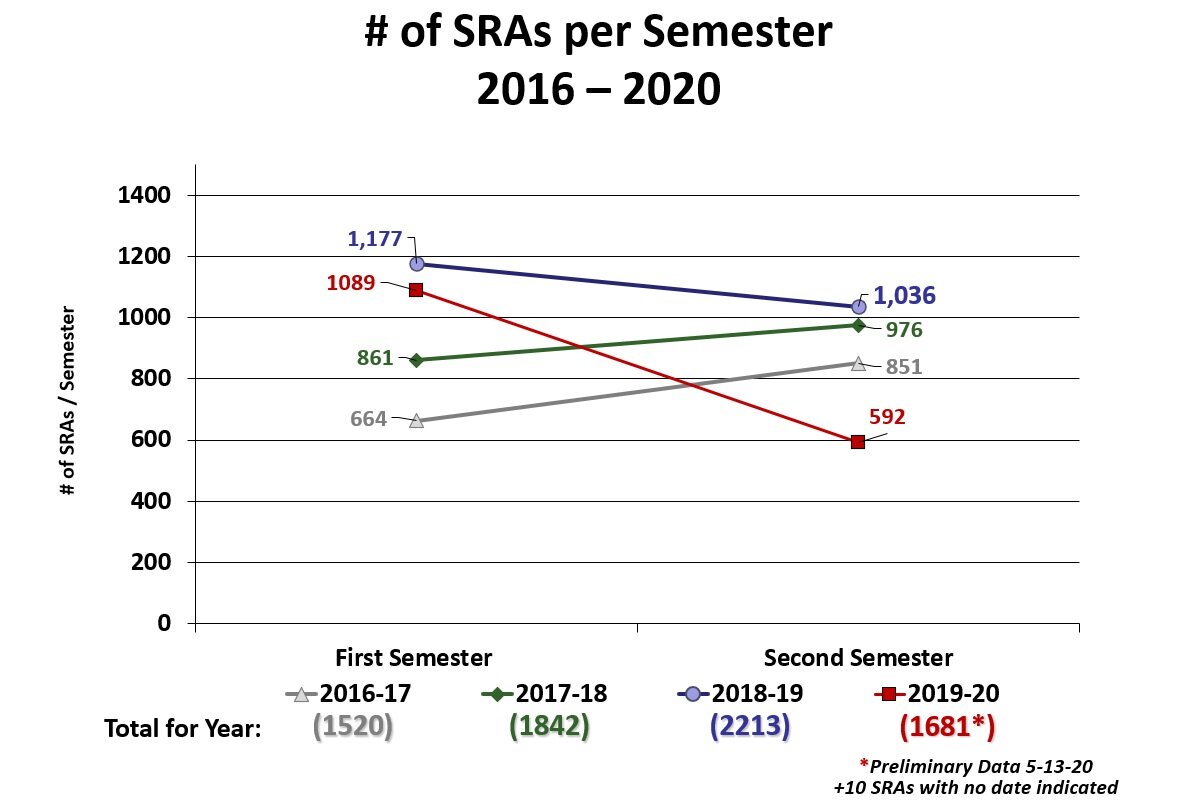Denver schools screened fewer students for suicide risk in the time of COVID-19

Denver-area schools have been screening a lot fewer students for suicide risk with school buildings closed due to COVID-19.
In a conversation with Insight’s John Ferrugia, Denver Public Schools student safety coordinator Dr. Jane Lineman discussed the challenges remote learning has presented to student suicide prevention.
“I think students are really starting to feel the impact of social isolation,” Lineman said. “We still have kids that are reaching out for mental health support around concerns of depression or anxiety. We are still seeing risk for suicide.”
DPS data shows suicide risk reviews performed by school mental health staff fell sharply in April, from 255 reviews in April of 2019 to just 44 reviews in April of 2020. Students transitioned to remote learning on April 7 after an extended spring break due to COVID-19.
Those reviews are typically initiated when there is a concern that a student has spoken about or thought about harming themselves.
School mental health professionals interview the student and gather information from parents to gauge the student’s risk level and determine whether the student needs to be referred for community mental health support. The reviews also result in safety planning for the student.
In the remote learning environment, those interviews are now happening either by phone or through video conferencing tools such as Google Hangouts.
Dr. Lineman said the declining number of reviews concerned her.
“For my own personal reflection, I feel like it’s always concerning if I feel like we are missing the identification of kids that are at risk. That kind of hurts my heart a little bit,” Lineman said.

DPS is not the only district experiencing a slowdown in suicide risk screenings. Rocky Mountain PBS obtained numbers from the Cherry Creek School District, which also showed a marked decline in suicide risk assessments in the 2020 spring semester.
Data from Jeffco Public Schools also showed a drop in assessments during remote learning, from 245 last April to 54 assessments conducted remotely this April.
The drop in screenings could be tied, in part, to a decrease in tips flagging worrisome behavior. Safe2Tell, Colorado’s statewide anonymous school safety reporting system, reported a 67% drop in tips statewide in April compared to the same month in 2019. A Safe2Tell spokesperson said it is common for tips to decline when schools are closed for regular breaks.
Lineman said those reports did begin to increase in the past few weeks of May in Denver schools after the initial decline. She said she believes the pandemic initially made it more difficult for parents, teachers, and students to recognize behavioral changes.
“I think right now during a pandemic there [are] a lot of people who are experiencing various levels of impact, and as a result, their perception of what is concerning and what is not concerning is a little skewed,” Lineman said. “When we’re in school and we have rituals and routines, and we’re able to better track consistency in terms of behavior and affect, that when we see that shift, we go, ‘Hmm, that looks a little bit different to us, I want to refer that.’”
Now, remote classrooms all over the state are beginning to close for the summer, and many students will continue to experience isolation throughout the break since COVID-19 is still a threat. Lineman said the district is working to continue to educate parents the warning signs for suicide risk, including changes in mood and affect, and changes to sleeping and eating patterns.
“During a pandemic sometimes it’s hard to figure out, are those [changes] related to the climate and culture that’s going on in the community, or is there something else going on? So I think it’s important for parents to be comfortable in asking the questions. Asking a child, ‘Hey, how are you feeling, what’s going on? What’s got you down?’ and being very direct in asking a child, ‘Are you thinking about killing yourself?’ And if so, knowing how to respond,” she said.
Lineman said remote learning has amplified the role parents play in monitoring their child’s mental health.
“One of the transitions to virtual learning that really shifted my thinking in how we connect with kids and parents is recognizing that the partnership between parents and schools is essential in keeping our kids safe. During this time, parents are providing supervision, parents are checking in with their kids. This is a great opportunity, whenever we identify someone who could be at risk for suicide, in really helping to kind of give away mental health to our parents and teach them how to engage their kids,” she said.
The district’s crisis response team is on-call throughout the summer and can be reached by contacting the Denver Public Schools Department of Safety at 720-423-3911.
Additional resources for parents:
Colorado Crisis Services can be reached 24/7 at 1-844-493-8255 or by texting “TALK” to 38255.
Denver Public Schools Suicide Prevention Resources
Tips for talking to your child about suicide.
This story is part of a collaboration with FRONTLINE, the PBS series, through its Local Journalism Initiative, which is funded by the John S. and James L. Knight Foundation and the Corporation for Public Broadcasting.

